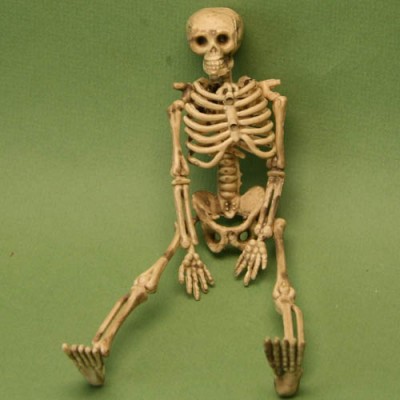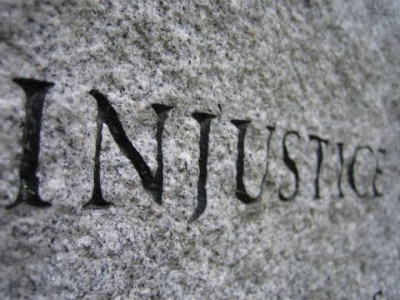A hard critical look at the Chief Justice’s apparent initiatives to revamp legal practice, and some questions for his Lordship to think about.
To the Chief Justice, it is all about “speedy disposal of cases.” No matter what, a case must be disposed of quickly.
He started out by, of course, blaming the lawyers. He forgets that he was once a practising lawyer himself. Would he tell us, frankly, that he had never ever asked for a postponement of a case because he had another case fixed on the same date? Or that nobody from his former esteemed firm had ever done so?
He has gone around town to paint an ugly picture of greedy lawyers having 93 cases to handle a day. To him, even medical certificates are not acceptable anymore.
Perhaps to him, the sole purpose of a lawyers’ existence is to delay the disposal of cases.
Nothing more, and nothing less.
Malaysia is well-known for stop-gap measures. For measures taken in the heat of the moment, without careful analysis of the real problems, their causes, their classifications and their solutions. Thus, when some people on jet-skis caused the death of some swimmers at a beach some years back, there was of course a chorus of calls to ban jet skis. I remember during the early days of motorcycle helmets, we banned helmets with visors because some hooligans wore helmets with dark visors to rob banks.
It’s going to hurt, but I am going to say it anyway — shallow minds only bring with them shallow solutions.
May I ask the Chief Justice, has there been a study on the so called “delays” in the disposal of cases in the Courts? Or to start with, what was causing the so-called “backlog” of cases in our Courts?
If there were “delays,” what kind of delays? What caused these delays?
Because really, to my mind, to lump up all the “causes” of delays and single them out on greedy lawyers is as shallow as blaming the West for all our moral deficiencies.

What about delays which are caused by the procedural merry-go-round?
What about delays which are caused by the judiciary itself? By its own inefficiency and dogged adherence to an almost medieval process?
What about delays occasioned by the Judges or judicial officers having to attend “courses,” “seminars” or even “meeting with the CJ”?
I have sat in an open Court doing nothing other than twiddling my fingers and counting sheep in broad daylight for FOUR consecutive days before finally being told that there was no time for the Court to hear my case, and that my case was to be adjourned to another date “to be fixed later.” Many others have gone through that too.
Do we blame the Courts? No, we don’t. We may bitch about it at the bar, but we don’t blame the Courts. We don’t do so because we understand that that is part and parcel of our legal practice. That the Courts do have many cases to deal with, and that it is difficult for the Courts to know exactly when our case will or can be dealt with.
Different kinds of delays require different treatment. And surely they also require different solutions. Procedural delays would, for example, require a look at the procedures and their variations, amendments or even wholesale revamp.
Delays caused by the Court’s inefficiency would of course require a close look at the number of Judges, their staff and the availability of courtrooms. Delays in the note taking process also require a different solution.
At the moment, the number of Judges, staff and courtrooms have increased dramatically. The note-taking delays have also appeared to be solved by the installation of video cameras and recording equipment. But do these really work towards solving delays?
Is that all?
Who, may I ask, transcribes all the notes of proceedings from their digital form to a legible analogue form? The Court staff? No. It is the lawyers. We are the ones who are lumbered with the job of transcribing the notes when in fact, and in law, it is the Court’s duty to do so.
Do we complain? No, we don’t.
We don’t complain because we understand that the Courts simply do not have the workforce — or even the expertise — to do so. While we take that responsibility as part and parcel of our work, all that we hope for is just a bit of appreciation by the Courts.
We do expect the Courts to appreciate that when the Courts determine the costs to be awarded to our clients, for example. Transcribing notes of proceedings is no easy task. It is arduous and tedious, to put it mildly. When we ask professionals to do it, it costs thousands of ringgit, when in law it is the Courts which are supposed to do it. Who pays for this at the end of the day? It is our clients. Isn’t it unfair for the Courts to expect our clients to pay for work which is supposed to be done by the Courts?
In an appeal to the Court of Appeal, we are required to include these notes of proceedings in the appeal records. Under the rules, we have 6 weeks to file the record of appeal. Time starts to run after we receive the notes of proceedings. But nowadays, the Court says that time starts to run when we receive the CD recording of the proceeding! What the hell is that?
Don’t the Courts realise that it takes time to transcribe the notes? If we engage professionals, we have to abide by their free times and dates. Why are we — and litigants who are lay-persons — being penalised for the Court’s own inefficiencies?
That is why I say there must be a close study of the “delays,” their causes, their different classifications and types, and their solutions. Otherwise we would have an incomplete solution to an incomplete diagnosis of a disease and its symptoms.
What the CJ is doing now is to treat symptoms without knowing what exactly is the disease.
If digital audio and video recordings of the Courts proceedings are the answers to the delays, than why don’t we just amend the rules to make it possible for records of appeals to include the digital recordings as part of the record of appeal? Why do we still need to transcribe the recording?
The answer to that is simple.
That simply cannot be done because the Court of Appeal is bereft of the infrastructure and equipments to make it possible for such digital note of proceedings to be accessed during the hearing of the appeals, either by the Judges or the lawyers. And so we are lumbered with a half-baked scheme. A scheme aimed at speedy disposal of cases by merely assigning blame and guilt, and nothing else.
In other words, a scheme for which Malaysia is well known for, a shortcut. An incomplete stop-gap measure.
That is what it is.

May I ask the learned Chief Justice, what is the percentage of appeals being lodged to the Court of Appeal from the High Courts in relation to the decisions delivered by the High Courts? 90%? 95%? Or is it 99%? May I ask why is there such a high number of appeals?
Let’s face it. Nowadays, no litigant is satisfied by the decisions of the High Courts. Almost all of the High Courts’ decisions end up in the Court of Appeal. Why?
The answer is obvious.
Almost nobody gives regard to the decisions of the High Courts. And I say that without meaning to cast disrespect on the High Courts’ Judges, some of whom are really working very hard, and some of whom are really good at what they are doing.
However, the speed at which the Judges are moving really leaves a bitter aftertaste in the mouths of litigants. There are Judges who rush through a hearing. There are Judges who insist that cross-examinations be limited to within a certain scope in order to “save time.” There are Judges who obviously do not even read the written arguments or even the Court papers because they simply do not have the time. There are even Judges who insist that cross-examinations be done in writing!
In order the speed things up, nowadays it is the practice to file a “witness statement,” for example. This requirement is not borne out by delays which are caused by lawyers. This requirement is borne out of the inefficiency of the Courts in taking notes. The obvious — and natural — solution to that is of course for the Courts to have staff with the proper ability and equipment to take proper notes.
Again, a stop-gap measure — and obviously, half-baked — was introduced. Parties are now required to exchange “witness statements.” That is supposed to solve the problem of note-taking. But does that solve the problem? Or does that breed another set of problems which are more serious and insidious?
Through centuries of practice, witnesses are supposed to testify under oath in the witness box. That is so because the Judge can then look at the demeanour of the witness and Judge his character form the way he behaves in the box. The judge can look into his eyes, observe his facial expressions, note the nerve in his voice, the change in his intonation when he either says “yes” or “no” to a question, for example.
On the other side of the coin, the witness, while in the box being asked questions by his own Counsel, is being conditioned progressively for the crunch later, namely, for the opposite Counsel to cross-examine him with probing questions designed to challenge or even discredit his testimony or himself. That is why witnesses are examined firstly by their own Counsels in the box.
Now, by simply exchanging witness statements, witnesses are robbed of the opportunity of being conditioned in the witness box. When he is called into the box, his pre-prepared statement would be taken as read (presumed as read) and cross-examination follows without further ado. Just imagine. He sits down in the box and the opposite Counsel promptly rains him with question after question designed to challenge him. People do not go to Courts and give evidence every day. Just imagine the stress that a witness has to go through.
Meanwhile, the Judge has also been robbed of observing the demeanour of the witness while being examined by his own Counsel. That is because the witness does not give an oral testimony anymore, but rather a written statement.
It follows that half of the Judge’s opportunity and means to judge the character of the witness has been taken away by the witness statement! To say that the Judge is well handicapped would be an understatement!
Did the Chief Justice actually think about this when he perfected this procedure of exchanging witness statements? Frankly, please? And what about the fact that the witness statement will inadvertently NOT be a statement by the witness in his own words and style? For sure — and I can say this 100% and more — the witness statement is not going to be drafted and finalised by the witness himself.
It is not going to be from his memory.
It is not going to be in his own words.
The witness statement, as we all know it, will be drafted methodologically by the lawyers. It will consist of some carefully chosen words, set out in nice paragraphs and excellent chronology. And so, the testimony of that witness, at the end of the day, could hardly be called as the absolute and truthful testimony of that witness.
Have we ever thought about all these issues? No. Because witness statements are a simple solution to the difficult and time-consuming act of taking notes by the Courts.
Do we see the problems which are created by our so-called solutions? Probably not. Because on paper, the solution works and it saves a lot of time. Cases are disposed of speedily.
And that is what that matters.
Who cares about those little things? Who cares about conditioning of witnesses, character observations and the likes? Those are only thought of by people like Art Harun, the greedy lawyers whose sole preoccupation is to delay cases by taking up 93 cases a day.
The truth is, certain procedures have been tried and tested for hundreds of years. They are there for a reason. They are there as inbuilt mechanisms to ensure justice is not only done, but also seen to be done. Of course we saw it fit to override such evidential procedures — which is an inalienable and essential part of the adversarial system which we practice — to overcome “delays” although such delays have got nothing to do with the procedures but rather the inefficiencies of our Courts.
Not only do we do that with impunity, we do such things without even thinking about the real causes of the problems which we had wanted to solve. And by doing so we create a more serious problem which affects the integrity of the trial — and the decision-making process — itself. All in the name of expedience and yes, speed.
May I ask the Chief Justice whether the core of the problems, namely, the inefficiency of the Court staff in taking notes has been solved by the introduction of audio recording and exchange of witness statements? The Chief Justice may think so. But with all due respect, it is not solved. The Court staff is still not able to take notes properly and in a timely manner. In fact, what is happening now — as pointed out above — is that the transcribing of the audio recording now has been pushed to the lawyers!
We have a case of the Court appearing to be fast, when in fact what is happening is the passing of the proverbial buck to the lawyers!
How convenient.

The Chief Justice can deny that most Judges are now driven by their need to satisfy their KPIs as much as he wants, but in reality that is more apparent than one would want to admit.
What about these:
- A lady lawyer had labour pains while arguing her appeal simply because the Registrar of that Court had refused to listen to her request not to fix the case during that period of time as she was expecting.
- A lawyer fainted in Court because his medical certificate was ignored by the Court which insisted that he proceed despite his illness.
- An accused person landed in jail for failing to turn up in Court for a hearing just because the Court had unilaterally brought forward the hearing date without consultation with any party.
- The Federal Court refused to postpone a Constitutional case on the ground that the lead Counsel of one of the parties had to undergo cancer treatment.
- The Federal Court had refused to entertain a Counsel’s request to fix a hearing later than the date proposed by the Court in order to enable the Counsel to complete his cancer treatment.

In the last case above, the solicitors told the Court that on the date proposed by the Court, the senior Counsel was going to have his chemotherapy sessions. The solicitors then requested that the case be fixed about 2 or 3 weeks than the date proposed by the Court. The Court did not even consider the request, and proceeded to fix the case for hearing on the proposed date, on which date the Counsel was to have his chemotherapy done! As a result, the senior Counsel and the solicitors discharged themselves from further acting in that case.
That case involves Constitutional issues which brings with it serious ramifications on the legality of laws.
However, the Courts saw it fit to behave in such manner.

Needless to say, the approach taken by the Court in that case — and in the case involving the pregnant lady lawyer — was cold and almost god-like (I feel sinful to associate such action with god, actually, but you all know what I mean). It is, in fact, inhumane!
The latest episode in this seemingly unending story of abject failure of justice is the case involving the challenge mounted against the decision of Teng Chang Khim, the Selangor State Assembly’s speaker, to declare vacant a state seat due to the absence of the state representative.
Tommy Thomas, Counsel for Teng, sent his junior to ask for postponement as he was engaged in Johor Baru. In fact, before the hearing in the Shah Alam Court, Tommy Thomas had written to the Court informing it of his predicament. The case in JB was fixed months ago and the date now clashed. As expected, and similar to the approach taken by the Federal Court in the example above, the Court refused postponement and proceeded in the absence of Tommy Thomas. How sad, especially when we consider the case involved, again, constitutional issues.
The Chief Justice is always quick to blame lawyers for, in his oft-repeated words, “taking too many cases.” That statement is irresponsible, untrue and is reflective of the god-like behaviour preferred by Court officials, and which is in vogue nowadays.
I have had my dates clash before, and it was through none of my doing. I have a case fixed for hearing, say on March 1, 2011. However, I also have various applications, appeals and cases filed in Courts, waiting for hearing dates to be fixed. When the date is finally fixed, it was fixed on March 1, 2011.
IS IT MY FAULT? Have I taken on too many cases?
My dates clash not because of me, but because the Court has fixed the hearing of the later case on the same day as my other case! Is that too difficult to see?
As pointed above too, the Court would go on fixing a case for hearing even if I tell the Court that I am not free on that date or that I have a chemotherapy session on that date!
So, really, IS THAT MY FAULT?
Did the Counsel in the above example ask god to give him cancer needing chemotherapy on the day fixed for hearing?
Or did that lady lawyer ask to have labour pains on the hearing date?
I am sure they did not.
The least that the Court could do was to be human. Or is that too difficult?
There are also managing Judges who, upon being told that the lawyer is not free on a proposed hearing date, would ask the lawyer to “farm out the case” to another lawyer. Are we dealing with sheep and cows or are we dealing with legal cases involving millions of ringgits or some serious constitutional issues here?
Why can’t the Judge acknowledge that parties have a right to choose their preferred Counsel? What if the Counsel has taken a retainer fee for the case? Can he just scoot off just because the Court is not willing to fix the case on a date convenient to every party?
Fixing cases for hearing and deciding whether or not to postpone a case is within the discretion of the Court. But it is well settled that such discretion must be exercised judicially. Which means, the discretion must be exercised in accordance with well settled judicial principals and not willy-nilly in a god-like manner.
However, it is disappointing to note that such discretion has appeared to be clipped and taken away by the current obsession with the need to speed up the disposal of cases. With the impending legalisation of plea bargaining in our Courts, I could very well imagine justice being offered on a wholesale basis every morning in the Courts in exchange for a guilty plea.
Mark my words.
As for justice, I just need to refer to this piece of judicial circus as proof that all is not well. A person who raped his own daughter not once, not twice, but ELEVEN times, was given a two-year jail sentence and one stroke of the rotan. Another who broke into a house and stole a laptop, on the other hand, gets four years jail and three strokes of the rotan.
Oh, I suppose, the Chief Justice would say the second guy has lousy lawyers!
Art Harun believes he is a failed government experiment, abandoned and left alone to roam the streets after all remedial efforts yielded no positive result. He calls himself a non-governmental organism, practices law for a living and tries very hard to play guitar, sing, race cars and write some stuffs to stay alive. This article was original posted on his award-winning blog ARTiculations. Follow his tweets at @Art_Harun.


What a load of trash!
Golars personnel have extensive experience in providing consultation with federal, state and local regulators, voluntary remediation programs, Remediation strategies and Brownfield programs, and provide site investigations, health risk assessments, risk prioritization and analysis of Brownfield cleanup alternatives to maximize public-private investment dollars.
Remediation strategies
http://www.golars.com/remediation-strategies-solu…
ok mah, he can kautim. i didnt sY IT. HE ADMITTED.
what else, he burn certs didnt he?
For UMNO, people like him are like Champions.
PTUI
But… you can charge 400% more!
It is now close to eight (8) years since i last had any contact, meaningful or otherwise, with my three (3) young children.
Lawyers like V Rajadevan and K L Rekhraj are a bloody disgrace to the legal profession. They are as crooked as cork screws.
What is the purpose of going to court when the useless court is unable to remedy your problem nor even able to safeguard one's god-given right as a father.
The police are just as equally useless – they arrest the innocent and protect the perpetrator.
I have only avenue left – death. My salvation lies in my death. Everything that I have slogged sacrificed sweated and toiled have been for naught.
Legal remedy is non-existent.
It is convenient to blame lawyers and ignore your own responsibility that led to your situation. Maybe it's time to face up to your actions that led to your predicament rather than constantly finding someone else to blame? Shameful post. Man up.
Is the lawyer paid by the hours he or she attend court and or the length of time taken ?
In normal circumstances the lawyer is always paid up front therefore how many times a court case is delayed is of very little concern to a lawyer. The lawyers most often are most often paid in advance, right ? and also it would justify for the lawyers to charge and ask for more because the case seems to take such of his time.